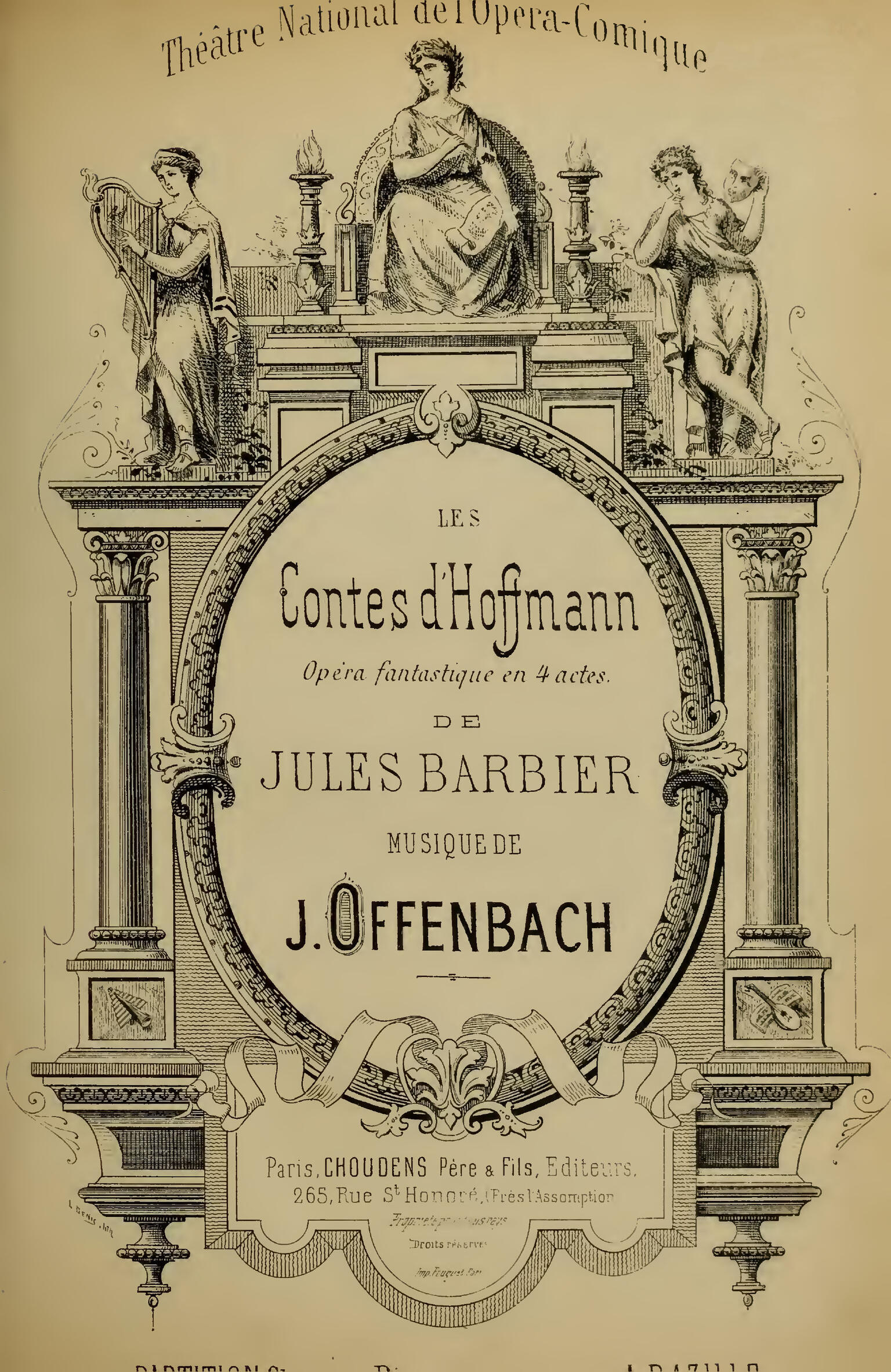Tales of Hoffmann
Jacques Offenbach
1880–1881
Tales of Hoffmann, an opéra fantastique, is the final work of composer Jacques Offenbach, who died four months before its premiere in Paris in 1881. At the time of Offenbach’s death, the opera was unfinished; it was completed by his colleagues. Perhaps because of this, there is no “official” version of Tales of Hoffmann. There are many versions, reflecting disagreements about Offenbach’s intentions for various aspects of the work.
Credits
Jacques Offenbach, from Tales of Hoffmann (Paris: Choudens Père et fils [1881]), Plate A.C. 5100.
Published in: The Posen Library of Jewish Culture and Civilization, vol. 6.
You may also like
The Brazilian’s Song from the Opera La vie parisienne

La Grande-Duchesse de Gérolstein
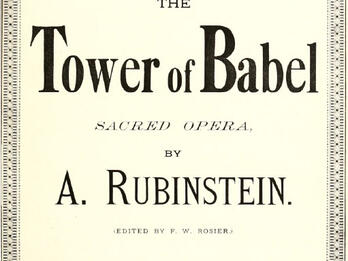
Der Thurm zu Babel (The Tower of Babel)
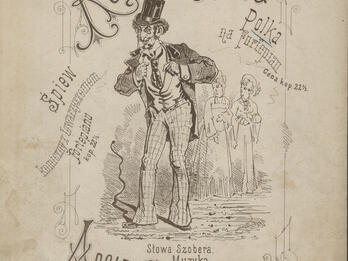
Kantorzysta: Polka na fortepiano, op. 68
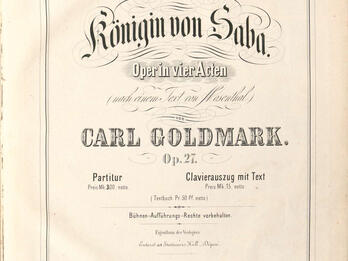
The Queen of Sheba
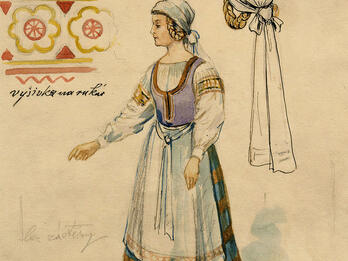
Drawing of Costume for Jitka in the First Production of the Opera Dalibor by Bedřich Smetana
Creator Bio
Jacques Offenbach
A prolific composer with a light comic touch, Jacques Offenbach produced scores of operettas, a lasting musical legacy. Born in Cologne, a cantor’s son, Offenbach mastered the cello at an early age, confounding his instructor. Performances in Parisian salons led, eventually, to renown, French citizenship, and a successful streak of operettas, begetting him more fame in the mid-1860s. Maturity conferred a more serious perspective, and his impish style yielded to a more sober, sensitive approach. By the time of his death, Offenbach was a national hero, worthy of the state funeral he was given.
Related Guide
Music and Opera in Jewish Culture
One of the most striking changes in European Jewish culture toward the later eighteenth century was marked by the entry of Jews into art music, opera houses, and the stage.
Language:
Places:
You may also like
The Brazilian’s Song from the Opera La vie parisienne

La Grande-Duchesse de Gérolstein

Der Thurm zu Babel (The Tower of Babel)

Kantorzysta: Polka na fortepiano, op. 68

The Queen of Sheba



